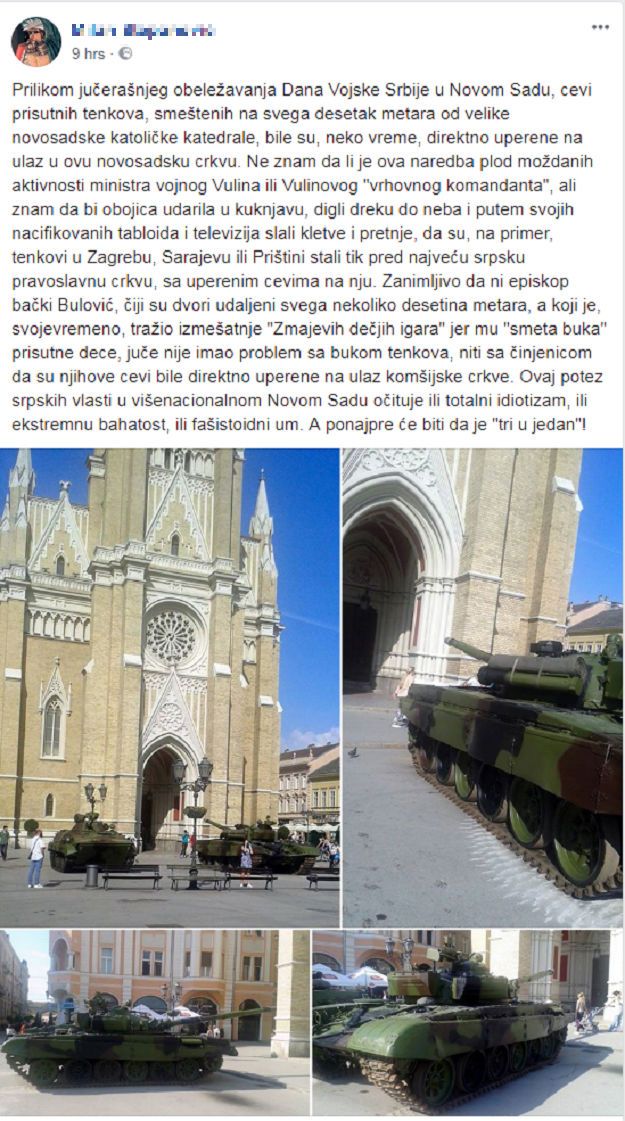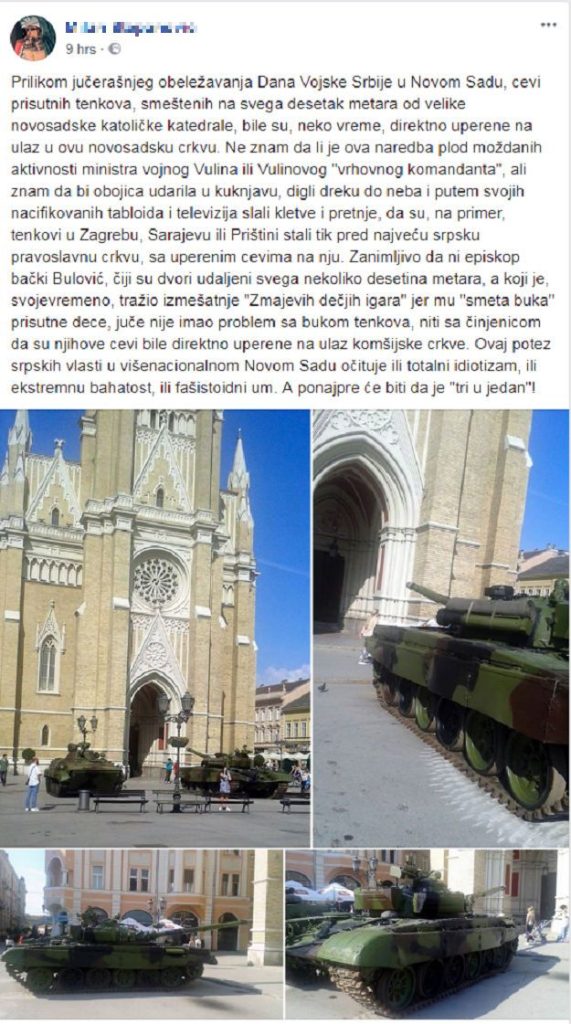A coincidence or a provocation?
On the occasion of the Day of Serbian Army, the Serbian authorities have organised a celebration in Novi Sad, the capital of the province of Vojvodina. On the square in front of the Catholic cathedral in the town, they displayed several tanks and other heavy weaponry. Interestingly, a gun of one of the tanks was for a while pointed towards the entrance of the cathedral, reports Index.hr on April 25, 2018.
The incident has been confirmed by a number of witnesses, and photos have been posted on Facebook.
“During yesterday’s marking of the Day of Serbian Army in Novi Sad, guns of the tanks, located only ten metres from the Catholic cathedral, were directly aimed at the entrance of the church for a while.
“I do not know if this command was a fruit of mental labour by Serbian Defence Minister Vulin or of Vulin’s ‘supreme commander,’ but I know that both of them would issue threats through their tabloids and television stations if tanks in Zagreb, Sarajevo or Priština were to be placed close to a large Serbian Orthodox church, with guns pointed to it.
“Interestingly, Orthodox bishop Bulović, whose residence is just a few dozen metres away and who used to demand that a children’s event has to be moved because of ‘the noise,’ had no problem with the noise of tanks yesterday or with the fact that their guns were directly pointed at the entrance to the neighbouring church. This move by the Serbian authorities in ethnically diverse Novi Sad is either total stupidity, extreme arrogance or a fascist-minded step. Probably, all of the above,” wrote one Facebook user from Novi Sad.
Most Catholics in Vojvodina are Croats and Hungarians.

According to citizens, the tanks were displayed at the square for three days, and these photographs were taken on the last of those three days in the afternoon. They added that the tanks were not photographed while they were leaving the square, but while they were standing still.
This incident comes at the time of heightened tensions between Croatia and Serbia. In the last several days, a visit by Croatian parliamentary delegation to Belgrade was abruptly cut short after Vojislav Šešelj, a convicted war criminal and an extremist member of the Serbian parliament, trampled on the Croatian flag and cursed at members of the Croatian delegation. Šešelj was recently convicted for giving inciting statements against Croats living in the Vojvodina region in the 1990s.
Several days later, Serbian Defence Minister Vulin, known for his inciting statements often aimed against Croatia, announced he would come to Croatia to a commemoration for World War II victims. After Croatian officials said he should not come due to the tensions, he said that the decision on his potential arrival to Croatia would be made only by the “Supreme Commander of the Serbian Army,” meaning Serbian President Aleksandar Vučić, and not by Croatian politicians. Croatian government reacted by declaring Vulin “persona non grata” in Croatia and saying that he would not be allowed to cross the border.
When Serbian President Vučić visited Croatia in February, it was believed that the visit would usher an era of improved relations between the two countries. This was initially confirmed by successful meetings between presidents and representatives of NGOs, as well as between government ministers. Unfortunately, the improvement in relations was short-lived.








